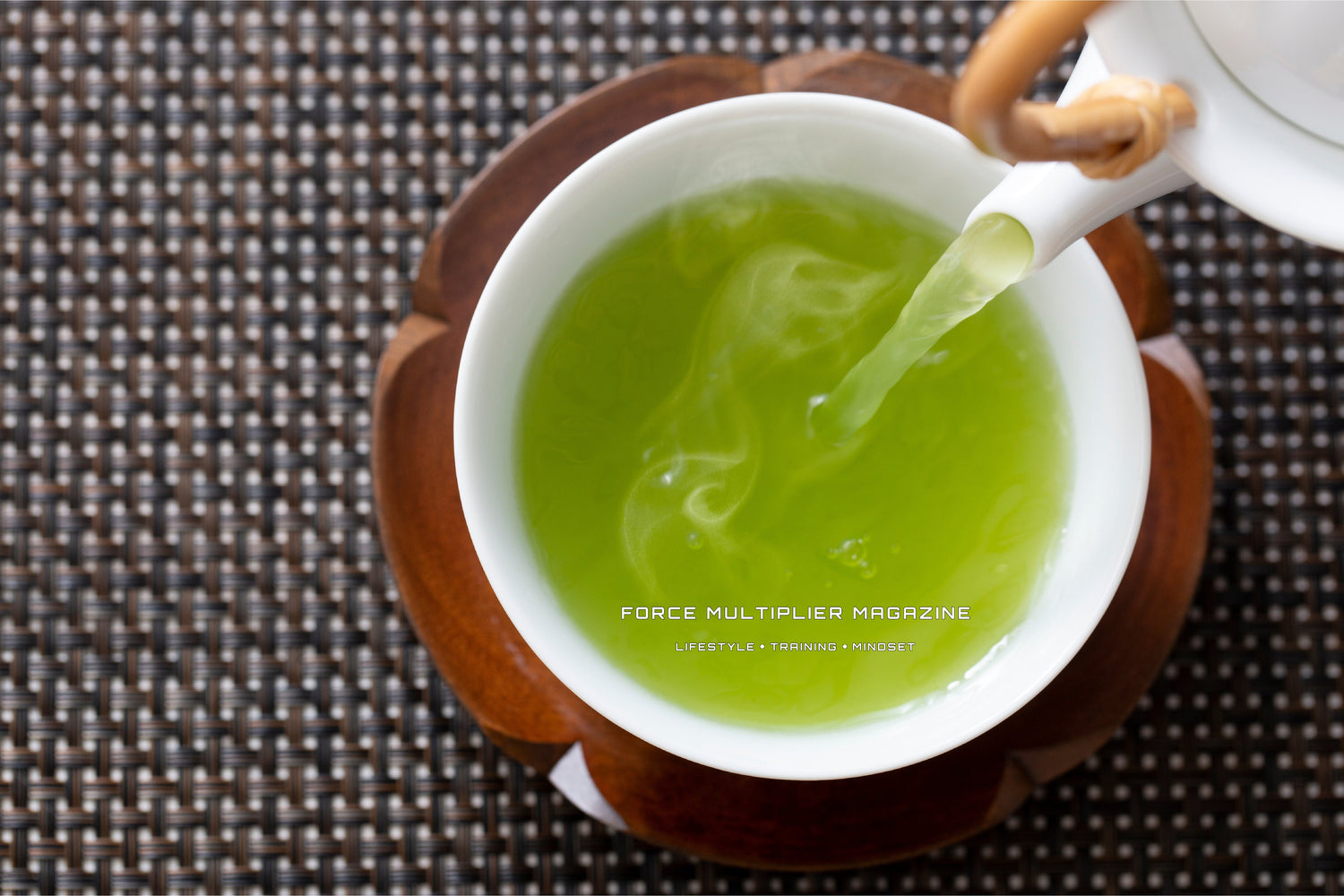For athletes seeking a natural edge in performance, recovery, and overall health, brewed green tea is a powerhouse beverage that delivers a range of benefits. Packed with antioxidants, nutrients, and compounds that support physical and mental demands, green tea has become a staple for those pushing their limits. Here’s why incorporating brewed green tea into an athlete’s routine can elevate their game.
1. Enhanced Endurance and Fat Burning
Green tea contains catechins, particularly epigallocatechin gallate (EGCG), which have been shown to boost fat oxidation and improve endurance. Studies suggest that EGCG can increase the body’s ability to use fat as an energy source during exercise, potentially sparing glycogen stores and extending performance in endurance activities like running or cycling. A 2008 study published in The American Journal of Clinical Nutrition found that green tea extract increased fat oxidation by 17% during moderate-intensity exercise, giving athletes a natural way to optimize energy use.
Brewed green tea also contains a modest amount of caffeine—typically 20-45 mg per 8-ounce serving—providing a gentle energy boost without the jitters associated with higher-caffeine drinks. This combination of catechins and caffeine can enhance aerobic capacity, making it easier to sustain long workouts.
2. Faster Recovery with Anti-Inflammatory Properties
Intense training sessions often lead to muscle soreness and inflammation, which can hinder recovery. Green tea’s high concentration of polyphenols, particularly catechins, acts as a potent anti-inflammatory agent. These compounds help reduce oxidative stress and muscle damage caused by strenuous exercise. A 2015 study in The Journal of Applied Physiology showed that green tea extract reduced markers of muscle damage in athletes after heavy resistance training, suggesting faster recovery times.
By incorporating brewed green tea into a post-workout routine, athletes can support their body’s repair processes, reduce delayed onset muscle soreness (DOMS), and get back to training sooner.
3. Improved Focus and Mental Clarity
Athletic performance isn’t just physical—it’s mental. Green tea’s unique combination of caffeine and L-theanine, an amino acid, promotes a state of calm alertness. L-theanine modulates brain waves, reducing stress while enhancing focus, which is critical for athletes during high-pressure competitions or complex training regimens. Unlike coffee, which can cause energy spikes and crashes, green tea provides sustained mental clarity, helping athletes stay sharp throughout their sessions.
A 2017 review in Phytomedicine highlighted that the synergy of caffeine and L-theanine in green tea improves cognitive performance and attention, making it an ideal drink for athletes who need to maintain precision and decision-making under fatigue.
4. Immune System Support for Consistent Training
Frequent intense training can temporarily suppress the immune system, leaving athletes vulnerable to colds or infections that disrupt training schedules. Green tea’s antioxidants, particularly EGCG, have antiviral and antibacterial properties that bolster immune function. Regular consumption of brewed green tea can help athletes stay healthy, ensuring consistency in their training and competition schedules.
A 2011 study in Proceedings of the National Academy of Sciences found that catechins in green tea enhance immune responses, offering a natural defense against pathogens—an essential benefit for athletes who can’t afford downtime.
5. Hydration with a Nutrient Boost
Proper hydration is critical for athletic performance, and brewed green tea contributes to daily fluid intake while delivering bioactive compounds. Unlike sugary sports drinks, green tea is low in calories and free of artificial additives, making it a clean hydration option. Its mild flavor also encourages consistent sipping throughout the day, helping athletes meet their hydration needs without overloading on sugar or sodium.
How to Incorporate Brewed Green Tea into Your Routine
To maximize the benefits of green tea, athletes should focus on proper brewing techniques and timing:
-
Brewing Tips: Use water just below boiling (around 175-185°F) to avoid bitterness, and steep for 1-3 minutes. Opt for high-quality loose-leaf green tea or reputable tea bags for the best flavor and nutrient content.
-
Timing: Drink green tea 30-60 minutes before a workout for an energy and focus boost, or post-workout to aid recovery. Avoid consuming it too close to bedtime to prevent sleep disruption from caffeine.
-
Moderation: Stick to 2-4 cups daily to balance benefits with caffeine intake, as excessive consumption may lead to stomach irritation or sleep issues in sensitive individuals.
A Word of Caution
While green tea is generally safe, athletes should consult a healthcare provider if they’re on medications or have pre-existing conditions, as caffeine and catechins can interact with certain drugs. Those sensitive to caffeine should monitor their intake to avoid side effects like restlessness or increased heart rate.
The Bottom Line
Brewed green tea is more than just a refreshing drink—it’s a natural ally for athletes looking to enhance endurance, accelerate recovery, sharpen focus, and support overall health. Its unique blend of antioxidants, caffeine, and L-theanine makes it a versatile addition to any training regimen. By incorporating a few cups of properly brewed green tea into their daily routine, athletes can unlock a simple yet powerful tool to fuel their performance and stay at the top of their game.
So, the next time you hit the gym, consider reaching for a glass of green tea. Your body—and your performance—will thank you.
The content contained in this article is for information purposes only, and is not meant to be a substitute or replacement for professional advice and medical consultation. It is just shared as information only, and with the understanding that Directional Force, LLC, (Directional Force) is not engaged in the provision or rendering of medical advice or services whatsoever. You unilaterally understand and agree that Directional Force shall not be liable for any claim, loss, or damage arising out of the use of, or reliance upon any content or information in this article or any article provided by Directional Force. Please seek professional medical advice prior to engaging in, or undertaking any of the content, exercises, advice, and workouts provided by Directional Force.


